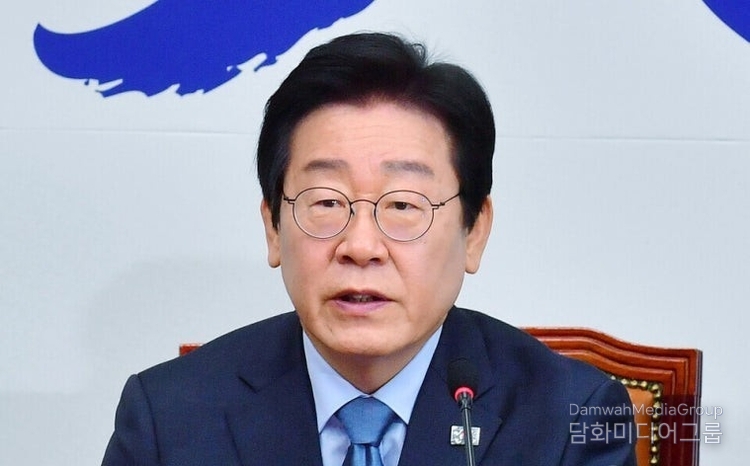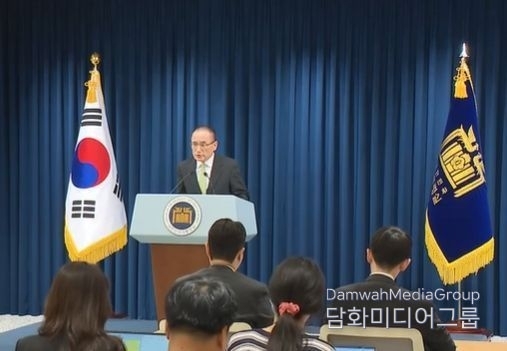By Diplomacy Journal Lee Kap-soo
President Lee Jae-myung will visit Canada for three days and one night starting on June 16 to attend the G7 summit. This will be his first overseas visit in about 10 days since taking office.
National Security Advisor Wi Sung-lac explained the significance of President Lee's attendance at the G7 Summit and the main schedule during a briefing on the morning of June 15.

Wi said, “This schedule began with Canada's invitation to South Korea, demonstrating that the G7 has high expectations for South Korea, an economic powerhouse that has shown the strength of democracy, and the newly launched government.”
He added, “The Lee Jae-myung administration will use this G7 summit as an opportunity to promote diplomacy that contributes to global prosperity and strengthen the partnership between South Korea and the G7.”
Wi summarized the significance of attending the G7 summit in four points.
First, he emphasized that “it will be the first international stage to convey the message that ‘Democratic Korea is back’ to the international community, overcoming the crisis of Korean democracy that was faced with martial law last year,” adding that “it has the meaning of widely publicizing the restoration of Korean democracy.”
He also said, “Participating in this summit meeting will fill the gap in summit diplomacy that has been stagnant for the past six months and can be considered a starting point for restoring and restarting summit diplomacy,” emphasizing that “it signifies the restoration of summit diplomacy.”
He also said, “By resuming summit diplomacy with major countries that drive the global economy, such as the G7, we will be able to actively pursue practical diplomacy to protect our national interests amid major changes in the global economy and security environment,” adding, “This is significant in that it marks the beginning of practical diplomacy centered on national interests.”
Finally, he added, “By interacting with leaders of the United States, Japan, and other countries at the G7 summit, we will be able to seek solutions to pressing economic and trade issues such as tariffs. This will provide momentum for resolving these issues.”

National Security Advisor Wi also explained the president's main schedule.
On the first day of his arrival, June 16, he is scheduled to hold bilateral talks with the leaders of major countries attending the summit as invited guests. Currently, the details are being coordinated with several countries, and the specific details have not yet been finalized.
On the same day in the evening, President Lee and his wife will attend the official schedule invited by Canada.
On the following day, June 17, President Lee will attend the G7 summit and deliver a speech on energy supply chain diversification and AI energy linkage.
Wi said, “Through his speech, President Lee will present our efforts and vision for a stable energy system and supply chain stabilization cooperation, and explain South Korea's role in building a stable global AI ecosystem and spreading the benefits of AI innovation in the AI era.”
President Lee is scheduled to hold bilateral talks with leaders of major countries, including G7 member states, before and after the summit, and Wi noted that schedules for bilateral talks with various countries are currently being coordinated.
Regarding the expected outcomes of this G7 summit, National Security Advisor Wi emphasized, “This will be a good opportunity to take the first step toward practical diplomacy centered on national interests,” adding, “Above all, it is very timely in that it will provide an opportunity to build trust early on through face-to-face meetings with leaders of major countries just 10 days after President Lee took office.”
He also expressed his expectation that “exchanges with the leaders of the world's economic powers will contribute to the recovery of our economy and the livelihoods of our people, as well as the activities of our companies, which are currently facing difficult circumstances.”
In addition, he said, “Through various bilateral talks, we will have the opportunity to strengthen friendly cooperation with major countries from the perspective of national interests and practicality, while also making progress in discussions on current issues such as trade and commerce.”







